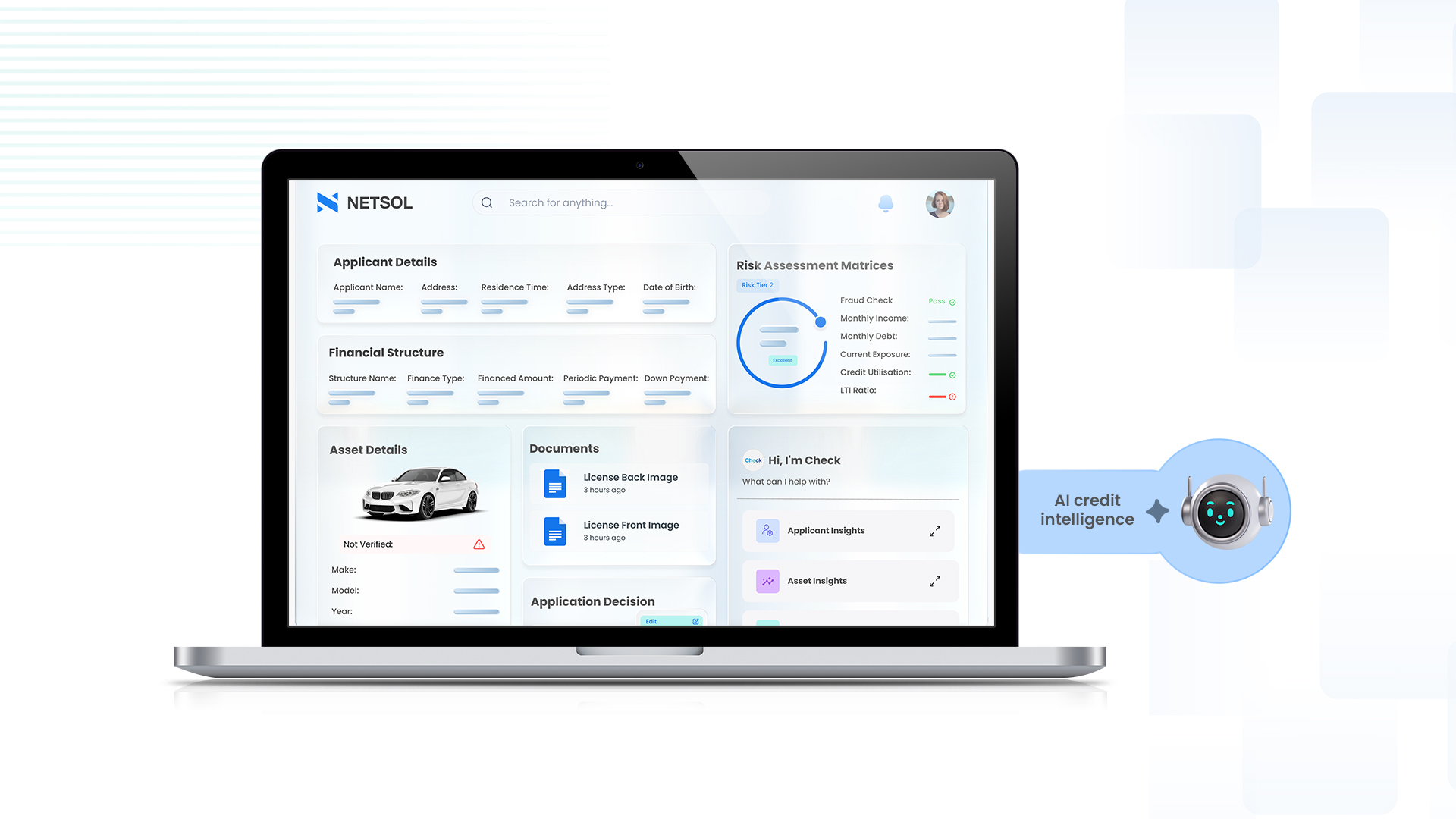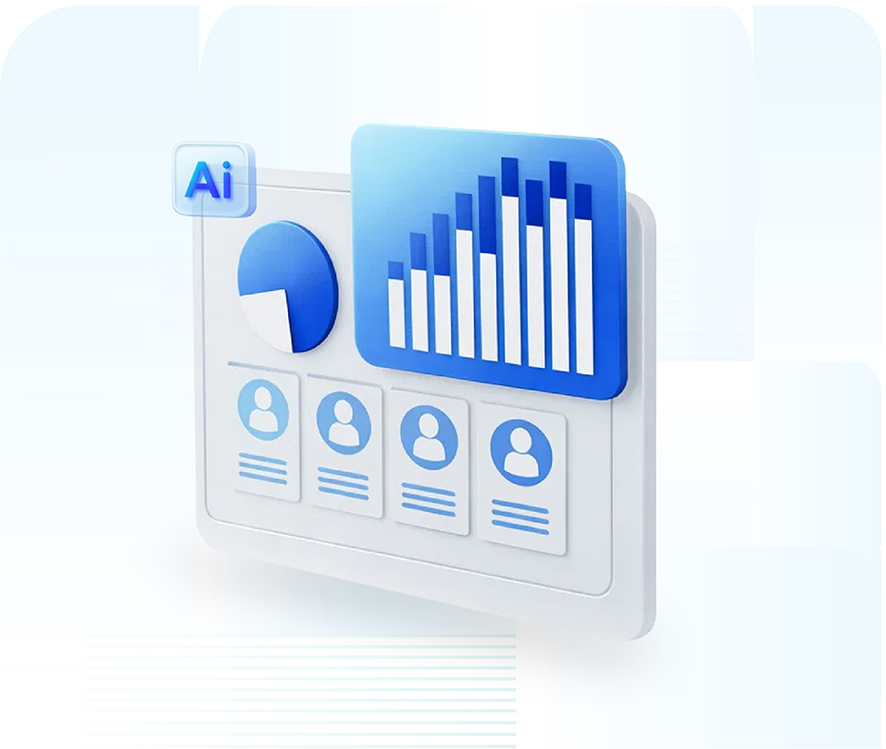Blog
The sky's the limit: 8 ways cloud computing is transforming the financial services industry
By NETSOL Technologies , on April 9, 2024
Discover 8 compelling ways how cloud computing is reshaping financial operations, driving innovation, enhancing security and fostering digital transformation.

Today, cloud computing is a powerful force, revolutionizing every sector and enhancing growth, agility, efficiency and innovation. Modern enterprise CIOs believe it to be a catalyst for organizational development.
The cloud market is driven by the necessity for digital transformation while leveraging the crucial benefits of flexibility, scalability and expedited time to market. The proliferation of cloud computing transformation is redefining the operational landscape, becoming a fundamental reconfiguration of monetary institutions' operations and delivery of products and services.
Mordor Intelligence industry reports on the 2023-2024 finance cloud market shared that by the end of 2024, the financial cloud market is expected to hit $26.93 billion. With this growth, they anticipate a notable CAGR of 20.05% with $80.30 billion by the end of 2029.
$80.30Bgrowth is expected by the end of 2029, according to a report by Mordor Intelligence.
Today, the financial sector deals with data security concerns, scalability limitations and legacy systems. With cloud computing for financial institutions, enterprises can enhance security measures, infuse seamless modernization and unparalleled scalability, and much more. Let's explore how cloud computing transforms the financial sector, leading the path towards success.
Here are the eight most compelling ways cloud computing is transforming and subsequently benefitting the financial services industry.
Enhanced scalability
Cloud computing enables financial institutions to scale their operations dynamically, accommodating fluctuating workloads and adapting to changing market demands. By leveraging cloud-based infrastructure, banks and other financial entities can swiftly deploy resources as needed, enhancing operational agility and efficiency.
During an interactive session, Marc Benioff, the Founder, CEO and Chairman of the Salesforce brand shared his ideology for cloud computing. He said, "If someone asks me what cloud computing is, I try not to get bogged down with definitions. I tell them that, simply put, cloud computing is a better way to run your business." Cloud computing enables scaling operations and is efficiently becoming the critical differentiator in the financial domain. With financial cloud computing, enterprises can unlock the door to the highest levels of flexibility. Unlike rigid legacy systems, the technology allows finance companies to infuse frictionless modernization by integrating innovative features. The cloud computing digital transformation seamlessly scales up the resources while accommodating augmented traffic and transactions, ensuring a smooth and uninterrupted user experience.
 Cloud computing is a better way to run your business. - Marc Benioff, Founder, CEO & Chairman of Salesforce. Distinguished Vice President Analyst, Gartner.
Cloud computing is a better way to run your business. - Marc Benioff, Founder, CEO & Chairman of Salesforce. Distinguished Vice President Analyst, Gartner.
Quicker speed to market
Financial institutions have been hitting the gas pedal for years whenever they try to accelerate their product launch. A wide range of challenges, such as budget, time, resources, and most importantly, deployment, slowed down the time-to-market ratio. But with cloud computing in finance, organizations can eradicate the slow deployment processes and produce new products, features and services faster than ever.
By leveraging cloud-based development platforms and DevOps practices, institutions can streamline software development lifecycles, reduce time-to-market for new offerings and swiftly respond to evolving customer needs and market trends. Cloud computing therefore accelerates the development and deployment of innovative financial products and services.
Fostering innovation and digital transformation
The digital transformation landscape is brimming with innovative technologies like AI, ML, data analytics and IoT. Financial institutions can experiment with emerging technologies on cloud-based sandboxes and test environments, fostering innovation and driving digital transformation initiatives to stay ahead in a rapidly changing landscape. This creates a competitive advantage, allowing organizations to adapt seamlessly to ever-evolving market demands.
Pertaining to cloud computing for finance, such technologies create fertile ground for cultivating groundbreaking FinTech solutions. Cloud-based infrastructure provides the scalability and agility needed for financial ventures to thrive. This empowers them to rapidly ideate, develop and launch solutions that reshape the industry.
Further, financial institutions can leverage cloud-based AI and ML services to analyze vast amounts of data, identify patterns and extract valuable insights that drive innovation in areas such as risk management, fraud detection and customer personalization.
Saving costs
Cloud computing offers a cost-effective alternative to traditional IT infrastructure, allowing financial organizations to reduce capital expenditures associated with hardware procurement and maintenance. Through pay-as-you-go pricing models, institutions can optimize resource utilization and minimize overhead costs, freeing up capital for strategic investments.
Physical infrastructure needs are minimized or eliminated, ditching bulky servers and saving substantial funds. There is a shift from the traditional CapEx (Capital Expenditure) model to OpEx (Operating Expenditure), seen as a much more flexible model. Instead of paying hefty upfront investment costs in infrastructure, financial institutions, especially those that are smaller in size, tend to prefer the pay-as-you-go or other subscription-pricing models.
The use of cloud computing in the financial services world is the elimination of intricate on-site setups, license fees, upgrades, maintenance and much more. By shifting to the cloud, enterprises can focus on what matters the most - making money - rather than being stuck with infrastructural databases.
Automated disaster recovery
Businesses lose millions due to network downtime and the absence of automated disaster recovery. As per a report by Pingdom, a small business experiences a loss of about $427 per minute due to network downtime, resulting in $25,620 an hour, whereas it costs $9,000 per minute for an enterprise, resulting in $540,000 or over half a million in losses per hour.
Did you know that the average cost of downtime per minute is $427 for SMBs and $9,000 for enterprises?
With robust cloud models dedicated to disaster recovery, financial institutions can manage network downtime and build cyber resiliency with customized responsiveness based on the requirements of their organizational model.
Regular disaster recovery drills are often hindered by extreme manual processes, taking hours for data centers to switch to the backup center. This results in extra delays and outages. With an automated cloud-based disaster recovery model, organizations can reduce the switchover time with no manual hindrance and achieve optimal results.
Seamless data security
Cloud solution providers invest heavily in stringent security measures and compliance frameworks, offering financial institutions enhanced protection against cyber threats and data breaches. Cloud solutions in finance provide encryption, access controls and continuous monitoring, helping banks and financial companies adhere to regulatory requirements and safeguard sensitive information.
Cloud storage streamlines data management for finance professionals, offering both centralized access and robust security, eliminating the need for scattered data silos and simplifying information retrieval and analysis.
NETSOL deeply understands security concerns, especially when dealing with sensitive financial data. With cloud computing in FinTech, we prioritize data security and implement industry-leading measures to address compliance needs.
The data security includes two key components:
- Data encryption: Cloud providers encrypt data at rest and in transit, rendering it unreadable even if intercepted by unauthorized parties.
- Access controls: Granular access controls ensure that only authorized personnel can access specific data sets.
This layered approach fortifies data confidentiality and fosters a secure environment for financial operations.
Harnessing quantum supremacy
As per the market research company MarketsandMarkets, the global quantum computing market will be valued at $1.3 billion this year. It's expected to hit $5.3 billion by the end of 2029, growing at an exceptional CAGR of 32.7%. This indicates the power of quantum computing and its unparalleled computational abilities. Cloud computing for finance industries drives quantum computing while providing access to the simulators, empowering enterprises to explore the algorithms of enhanced cybersecurity.
$5.3Bis the all-time high the global quantum computing market is ready to hit by 2029, according to Markets & Markets.
Giants like Google and IBM are leading the way, coming forward with Google Quantum AI and IBM Q Experience. These allow users to access 24 quantum systems remotely under the cloud. This opens tremendous opportunities for innovation and collaboration across multiple industries, strengthening each one in the process.
HSBC and JP Morgan are leveraging quantum technology, building an ultra-secure transactional system to face future cyber threats. Decarbonization efforts
Climate data and analytics are about to explode and cloud computing is the secret weapon. Cloud computing in the financial sector makes using powerful tools like AI, ML and IoT easier. Here's the trick - Cloud platforms let financial institutions utilize massive amounts of environmental data - like a financial data black hole. This data can then be analyzed and visualized, giving institutions the intel they need to make smart choices and shrink their carbon footprint.
Companies like Microsoft Azure offer comprehensive cloud toolkits like one-stop shops for building a modern 'data estate' focused on sustainability. This translates to reducing emissions, optimizing resources and becoming a sustainability champion.
Now's the time to harness the potential of the cloud in the financial services industry
By embracing cloud computing solutions, financial institutions can break free from the constraints of traditional infrastructure, unlock new avenues for growth and better serve the evolving needs of customers in an increasingly digital world. As the industry continues to navigate dynamic market forces and regulatory complexities, the cloud offers a powerful enabler for driving operational efficiency, accelerating digital transformation and fostering a culture of innovation.
With its scalability, cost-efficiency and advanced capabilities, the cloud empowers financial organizations to adapt swiftly to change, mitigate risks and capitalize on emerging opportunities. As we look to the future, the strategic adoption of cloud technology will undoubtedly remain pivotal in shaping the trajectory of the financial services industry.
Contact NETSOL today to inquire how cloud computing transformation can assist you in transforming your operations and attain a competitive advantage.
Related blogs

Blog
From credit checks to credit intelligence: How AI is redefining underwriting for captives

Blog
Shared financing models for high-value assets unlocking Indonesia’s next wave of growth

Blog



